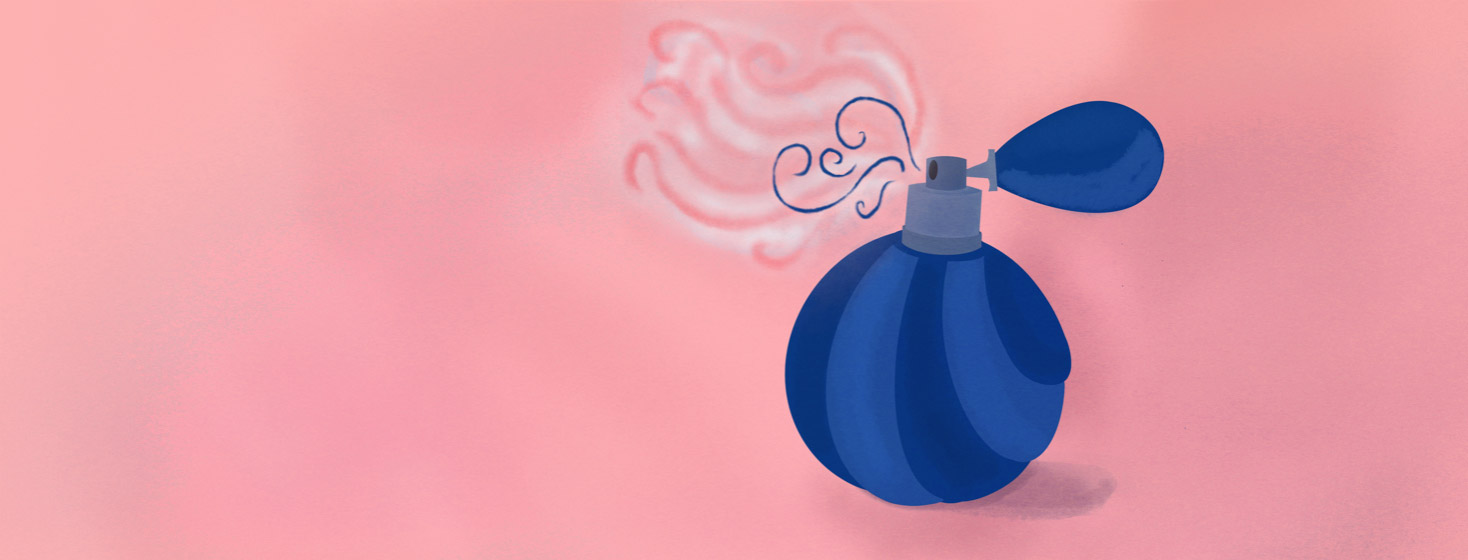Understanding Fragrance-Induced Asthma Triggers
I sat at a local roaster, indulging in some fresh coffee. I enjoyed the smell of chocolate and freshly roasted coffee cooling in the ocean breeze.
As I worked away on my laptop, there was not the slightest hum or constriction in my lungs. Then, a group walked through the door. They brought with them the strangling scent of a cloud of perfume. Although I sat a dozen feet away, the obtrusive scent was determined to reach anyone it could.
My lungs instantly began to seize. Luckily, I was wrapping up anyway, so I left.
This or That
Do different perfumes and/or fragrances trigger your asthma?
Why do some scents trigger asthma?
As I walked down the road, I began thinking about why one strong perfume can be so agitating to my lungs. I wondered why the omnipresent aroma of coffee does nothing but offer a comforting hug to my bronchi.
Why does the smell of the ocean ease my breath, while the scent of some body sprays triggers my asthma symptoms aggressively?
This is what I found out the next time I was on my laptop. I discovered that my reaction was a clear case of fragrance-induced asthma.
What are the 2 families of fragrance?
There are 2 families of fragrance: those that occur organically or naturally, and those that are created artificially. I have noticed that the strong asthma triggers that bother me are consistently from the artificial family.
For example, the natural scents of freshly roasted coffee and the ocean air have no effect on my breathing. In contrast, the fragrance of that perfume cloud caused instantaneous irritation. It turns out that I am not alone in this realization.
Many people experience fragrance-induced asthma when exposed to artificial chemicals. The fragrances that choke me up—and choke up most other asthmatics—are heavily processed and contain many additives. These include perfumes and aerosol body sprays delivered from pressurized cans.
Perfumes are common asthma triggers because they are frequently made with chemicals derived from coal tar and petroleum. These ingredients help the scent stick to the object on which they are sprayed.
Which fragrances should I avoid?
The fragrances that have little effect on my lungs involve minimal processing. For example, rose water has never once triggered my asthma. It is made with just water, rose essential oils, and sometimes a mint aroma. Rose water is also delivered as a spray from a pump bottle rather than a pressurized aerosol can.
Some fragrances and asthma triggers that I avoid include:
- Body sprays: They are delivered with aerosols, which are common triggers. The scents are often artificially created aromatic chemicals.
- Perfume and cologne: While they are commonly made with the essential oils of natural scents, they use other agents to empower the fragrance and help it bond to what it is sprayed on. Common agents include petrochemicals, alcohols, and coal tar; none of these are things you want on your body.
- Bathroom sprays and air fresheners: These contain many of the same additives and, ironically, make the air less safe to breathe.
How can I manage fragrance-induced asthma?
Avoidance of harmful fragrances is simple, literally. The organically occurring scents that are not triggering are very simple concoctions.
If you are looking for something that smells nice but, more importantly, feels nice, shop for simplicity. Take the time to look at the ingredients. If you can’t read the ingredients in 10 seconds or less, chances are there’s more in it than you want.
A long ingredient list increases the chances of encountering something that doesn’t agree with your lungs. Simple products exist in every category: perfume, sprays, deodorant, air fresheners, shampoos, soaps, and even toothpaste.
How can I protect myself against uncontrollable fragrances?
As for the external sources of fragrance-induced asthma, like the group that came into the coffee shop, that's tough. Unfortunately, there’s little you can do to control the fragrance-soaked people of the world or the public restrooms with automatic sprays mounted on the wall.
This is why we carry our rescue inhalers and look for comfortable spaces. I wish you the best in making your living spaces more comfortable, and hope this article helps you to identify triggering fragrances.
Do you have fragrance-induced asthma? Share your experience with the community.

Join the conversation